Calling Tim Green a connoisseur of Japanese-made gear would be an understatement. The majority of his inventory dates back to the '70s and '80s—the birthing age of some of the most sought-after pedals and guitars today. A museum-esque curation of vintage Boss, Maxon, and Tokai pedals adorn the walls of his showroom in Sydney's inner-west.
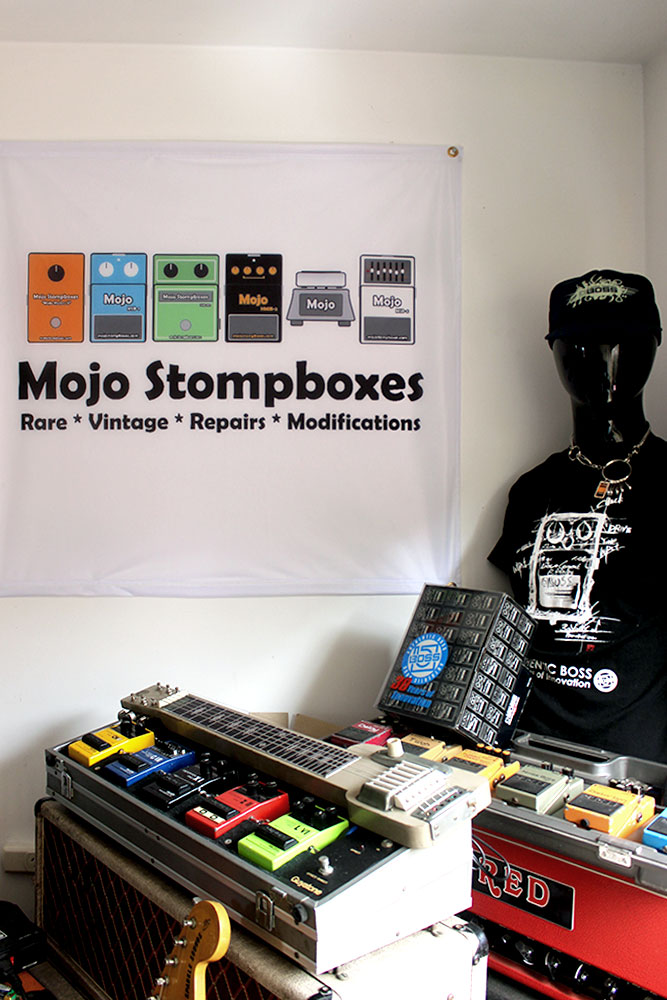
While its name may suggest a pedal-only affair, the abundance of rare guitars and basses at Mojo Stompboxes tells a different story. Expect to find a diverse range of staple classics and unconventional Japanese brands in store, ranging from Fender and Yamaha to Guyatone and Tomson. With so much vintage eye-candy to choose from, Mojo Stompboxes might just become your new favourite store, with your favourite old gear.
How did Mojo Stompboxes first get started?
I've always had a big fascination with old stuff. It's funny because I sucked at history during high school, because they were telling me what I needed to learn and what was important. But at the same time, I was using a 1970s Greco Les Paul for my music classes and had a 1980s Boss CE-2 on my pedalboard. I had a habit of buying and selling gear to fund more purchases and grow my own personal collection, so my knowledge and interest in vintage gear grew and grew.
I guess you could say I've always done it as a side project. Then years later, I hit a point where I realised I'd developed a lot of connections and was making a lot of people happy with the gear I was selling, and thought maybe it's time I make a real go at this. So I quit my job in late 2016 and started doing it full-time.
What was the inspiration behind Mojo Stompboxes' name?
The name gets to people a lot, because they think it's serious. When I first coined the name Mojo Stompboxes back in 2011 or so, the term "Mojo" was a big buzzword on the forums. I bought the domain name as a bit of a tongue-in-cheek stab at the industry, and I guess it snowballed from there.
It's meant in a very ironic way, but at the same time I guess there is a lot of fairy dust in vintage gear, so interpret it how you want! I personally don't see any vintage gear to be specifically "better" than new gear (and vice-versa), but it's what I enjoy and it's what a lot of my customers enjoy too.
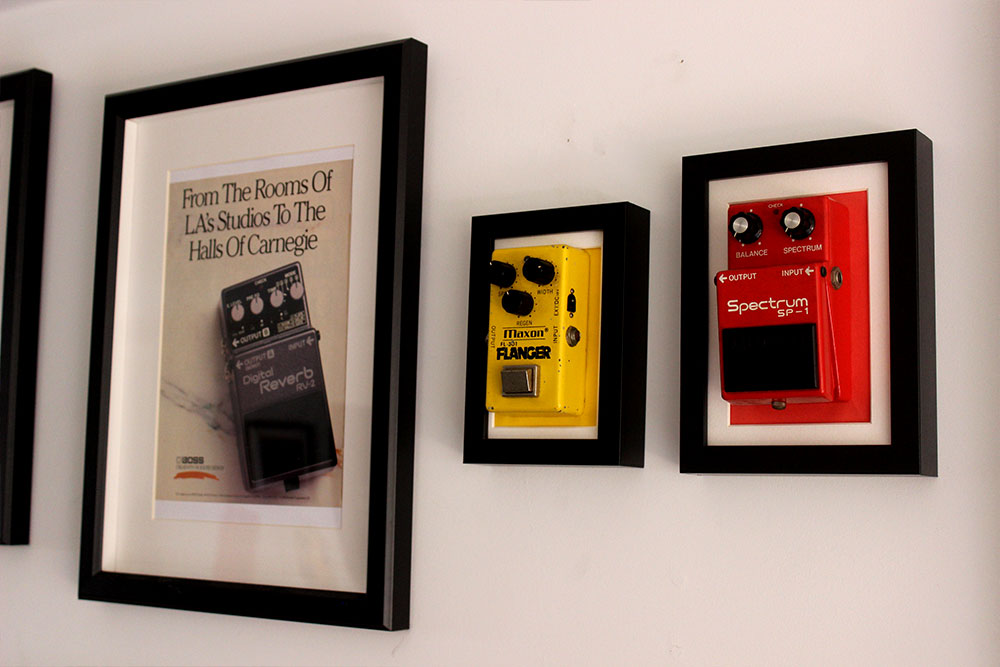
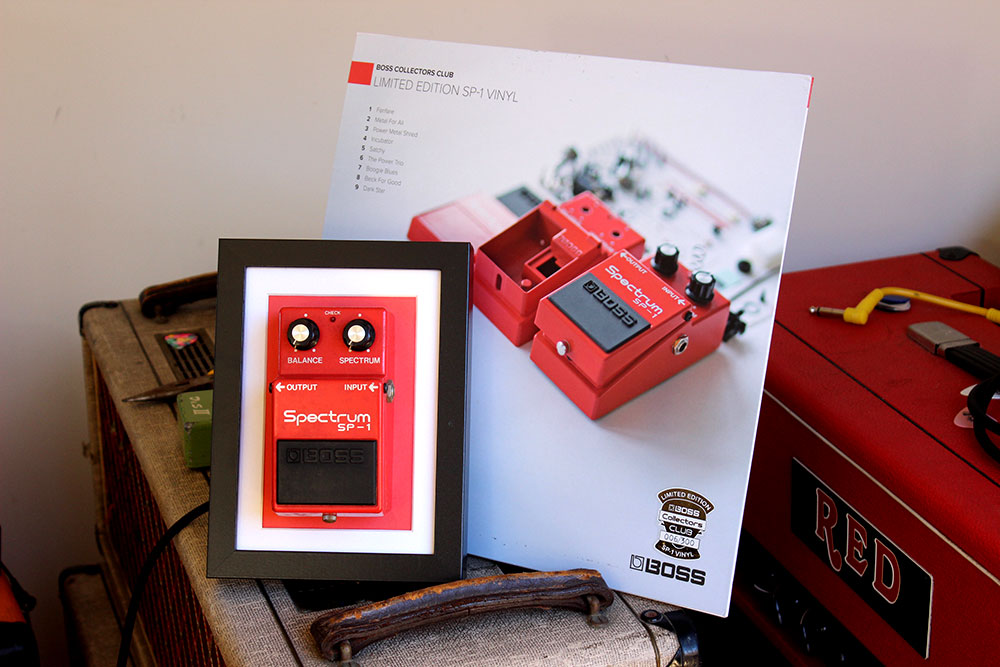
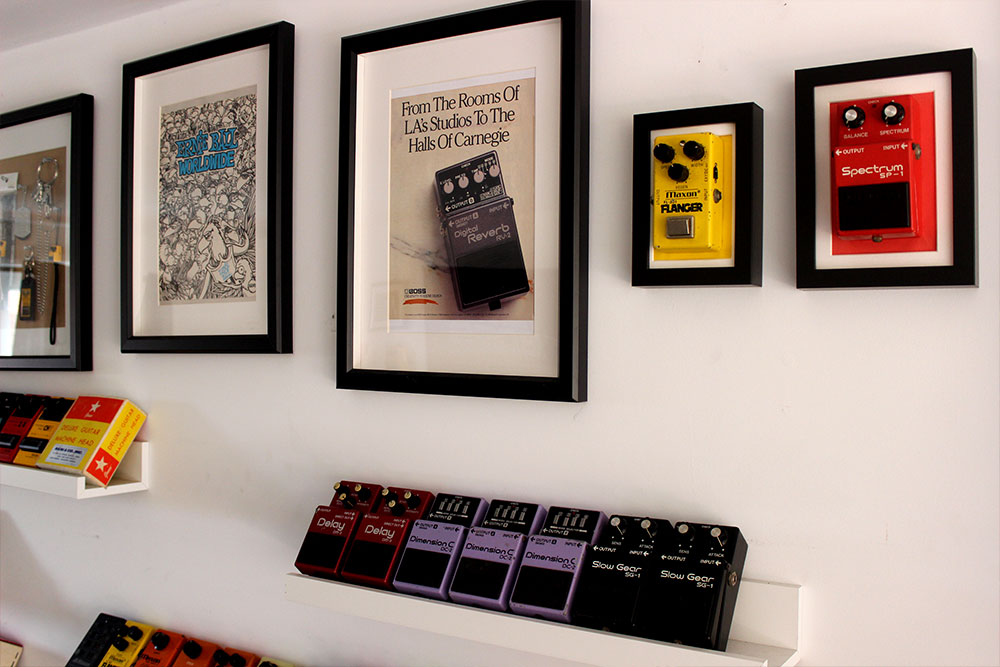
Your Reverb store heavily favours vintage and rare Japanese gear. What's the "mojo" behind these unique Japanese products that seem to draw so much attention across the world?
Personally, I've always had a strong connection with Japan. I toured there back when I was in high school with a baseball team, and fell in love with the country and the culture. I think the people there have always taken a lot of pride in their work, and that reflects in the quality of their music gear.
The reason I fell into vintage Japanese gear goes back to that 1970s Greco Les Paul I mentioned earlier. As a high school student back in 2009 with a huge love for vintage gear, most of the offerings from Gibson or Fender were well out of my budget. 1970s and 80s Japanese gear allowed me to venture down the rabbit hole at a price that was reasonable for a teenager. Plus, there's obviously that geographical proximity that helps with accessibility.
Australia is home to a ton of interesting second-hand gear that you can't find anywhere else, why do you think that's the case?
Again, I think that proximity to Japan really helps in that regard. The other place you weirdly see a lot of it is Russia, but if you look at a map you realise why that is! I think it boils down to Australia not really having a huge guitar industry of its own back then, so the Japanese offerings were the best available.
The US had Fender and Gibson, and they were (and still are) super patriotic about those companies, so the need for quality instruments wasn't really there. A lot of guitar stores here in Australia imported Japanese guitars under their own brands to sell, so plenty of them still float around these days.
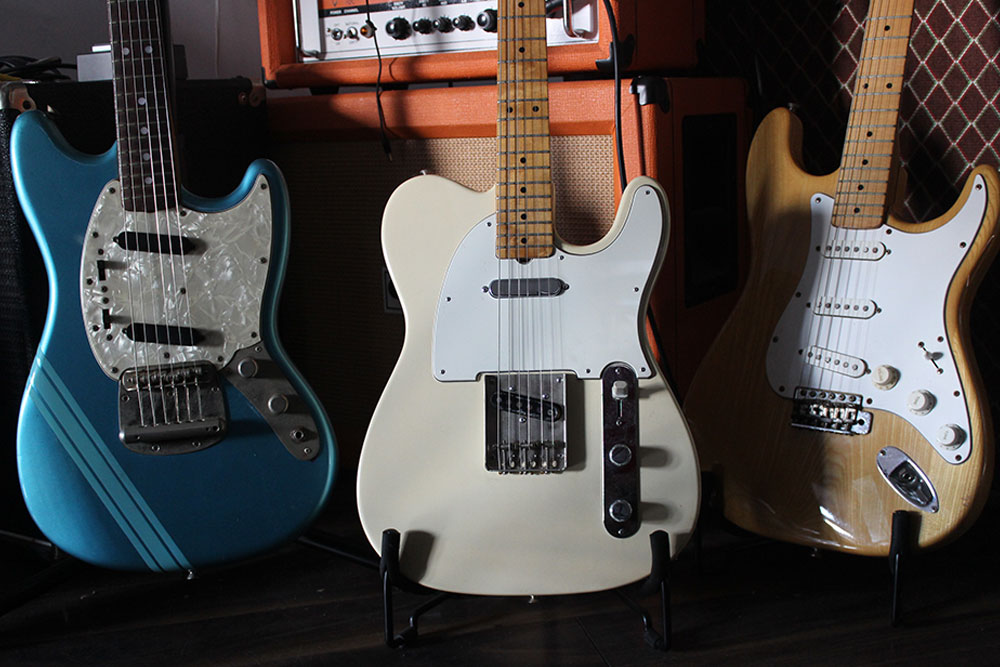
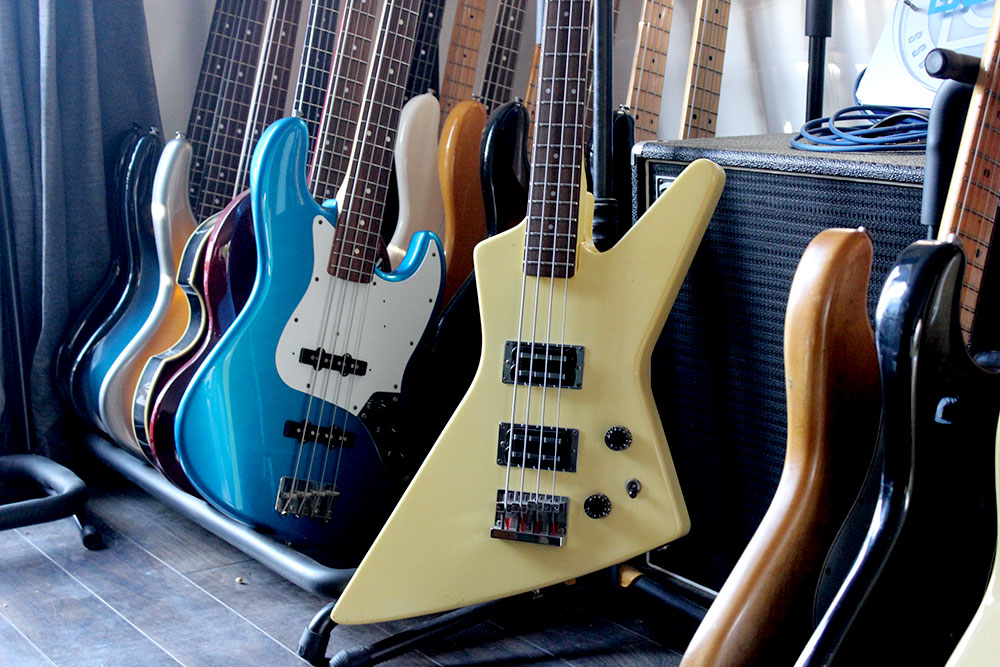
What are some of the most noteworthy pieces of gear you've got on hand right now?
I actually just had a Boss CE-1 Chorus Ensemble land in my lap with the original box and paperwork included, so that's always going to be a fun few hours of testing and playing. Plus, I've recently acquired a pair of Boss SG-1s that both date to the first month of their manufacture in 1979, so it's cool for me to see a pair of pedals that left the factory nearly 40 years ago being reunited in a small workshop in Sydney. As for the other stuff, I have a motto: I'm only ever going to sell gear that I enjoy myself, so just about every guitar and pedal I've got in stock is special to me in some way.
I'm loving the 1960s Guyatone and Teisco short-scale basses that I've had flow through in the last month or so—they always surprise me! In terms of my own personal collection, I'm always adding more and more Boss merchandise as I stumble across it. I've listed one or two things on Reverb over the last few months, but most of that collection stays close to me at all times! I mean, how many people can say they have seven Boss wristwatches?
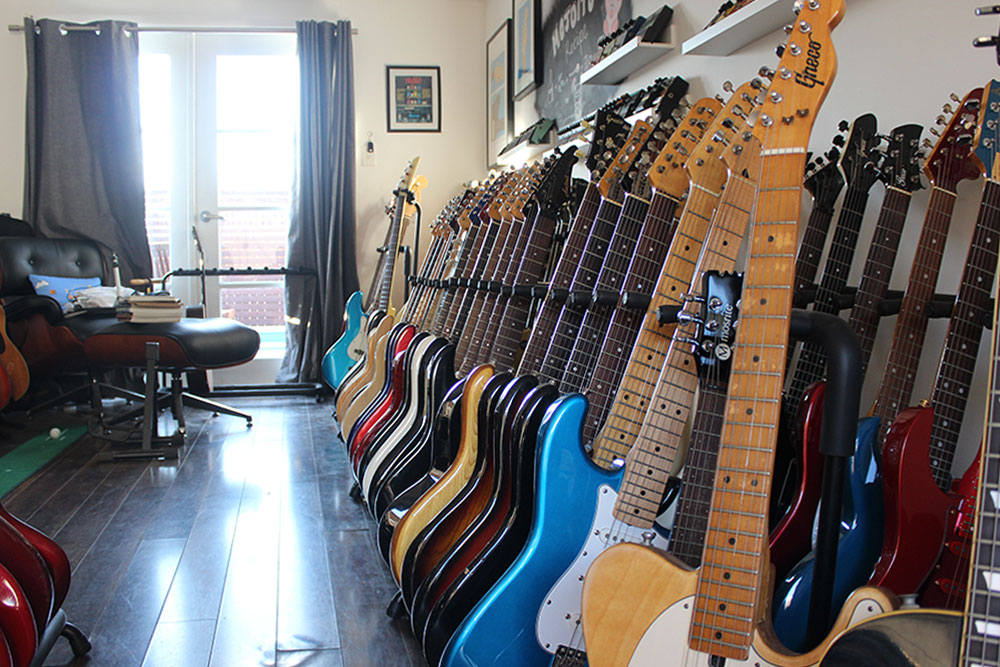
What role has Reverb played in your business?
I've been with Reverb since its launch in Australia in 2014, so I've seen it grow a lot. It's been great to see a group of likeminded people all together buying and selling gear. There's nothing worse than looking online for a Fender Mustang and having to sift through thousands of used car parts just to find the right offset, so having a marketplace made by musicians, for musicians, has been a lifesaver.
What's on the horizon for Mojo Stompboxes?
The future for me is growth. I've always been a one-man operation. Every guitar or pedal that comes through is opened by me, tested by me, serviced by me, and packaged for delivery by me. While I don't see that changing, I do see the chance to grow my market and bring hundreds of old pedals and guitars out of closets and storage units and get them into people's hands, so they can experience the same feeling that someone else did years ago.
Check out Mojo Stompboxes' Reverb Shop here.
